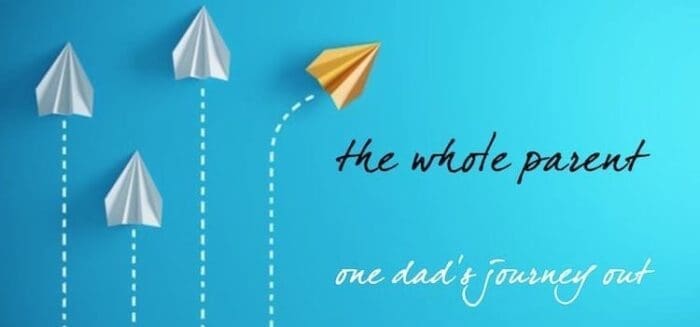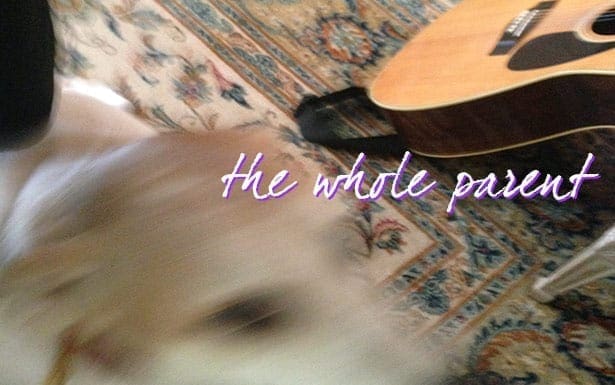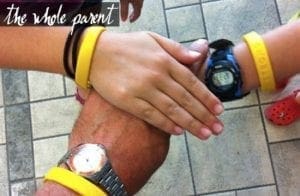Question: Are all men self-identified “touch” addicts? I was told by a woman the other day, discussing Love Languages, that she’d never met a man that identified as anything other than “touch focused.” Is that your experience as well?
If you buy into The 5 Love Languages, then it’s important to understand your language. And once you do, things can become a whole lot easier. Sure, you *can* be in a relationship with someone who has a different love language orientation, but it’s always going to be a compromise between the two of you, reaching across your own needs to meet the needs of your partner. That’s okay, but if you don’t understand what’s happening, it could be quite confusing.
I am clear on my love language. I speak touch. And once I own this, I can understand that most of my feelings of connectedness and caring come from some form of actual physical touch. I think of it sort of like a dog or a cat. When they want to be close to you, they actually get on you (cat) or they lay down against you. I’m like that. If we’re within arms reach, I’m usually going to reach out and give you a casual brush, that says, “Hi, I care about you, I’m here.” That’s it. There’s not really any sexual drive behind my need to touch. But there it is. I enter a room and see my kids or my significant other, and I want to touch them as a form of greeting, again a bit like an animal.
In my marriage, in the early days, we didn’t have the love languages universe to compare notes. We entered into our courtship and eventual love with no meta-understanding of how we as individuals, experienced feelings of love. We knew the usual suspects, time, attention, happiness, and compatibility. And of course, sex. But the nuance of what made us tick as a couple was still pretty hidden in our subconsciousness.
As we moved forward in our marriage and became parents with a mortgage in a nice neighborhood, and we succumbed to the stresses and trials of growing a family, we began to show signs of distress. And this is where our different love language DNA began to show up as a problem. (Again, at this time, the book had not been written. And even when I did discover the book, it was a bit too late to reorient my failing marriage around some philosophical/psychological information.)
Here’s how things began to play out as our upper-middle-class lifestyle became harder than it should’ve been.
Me: As a touch-oriented person, I sought out comfort through touch (cuddle, hold hands, kiss, spoon, nap, and yes, make love). I knew that I gained strength and calming closeness from physical touch in all its wonderful forms. So this is how I wanted to be comforted and this is how I chose to reach out to my then-wife.
Her: Her love language was more in the realm of “do something for me that shows me how you care.” She wanted me to anticipate chores and just do them without having to be asked. She wanted the lawn to be mowed at a certain time without ever needing to tell me, or more likely, get in an argument with me about why it needed to happen this very weekend. She wanted action and not touch or comforting words.
As we began to hit tougher times she began to focus on the “actions” I was or was not taking in support of her needs and feelings of stress and trauma. While I wanted to cuddle she wanted to do the excel spreadsheet for the afternoon to see where we’d spent all the money and where we were going to spend the money next week.
The trying times brought out our core love language orientation in a very pronounced way. She became unable, or less and less willing to bridge the gap into my “touch” requests, as she was so focused on the *DO* aspect of our relationship. And I was so lost by the isolation of not being touched, that I began to thrash a little bit wondering if I was ever going to get a physical need met again.
Things did not work out. We were no longer willing to compromise our core needs, as articulated through our love language. We lost the connection that had bound us in the beginning, as we reoriented our wants and dreams around ourselves. Once we had unlocked the parenting portion of our needs (having kids) and had begun to experience some of the stresses of adult life as parents (bills, insurance, jobs, job loss, stay-at-home dreams) we began to act out our love language requirements in a more pronounced way.
It’s a simple explanation for a complex situation, but it holds some clear truths. We started out our relationship and eventual marriage with abundant sexual energy and the thrill of newness and youth. We hit the mid-marriage period and as stress developed we experienced our losses and needs more directly in identifiable alliance to our love language profile. As we got more clear and more articulate about what we needed, neither of us was willing to give up any part of our needs to fulfill the needs of the other person. In the end, she decided to seek her satisfaction outside of the relationship to me, and we divorced. The differences in our love language DNA seems to hold the clearest description of what broke down.
As I move forward into my life, looking for another relationship, I am more acutely aware of several things.
- How happy is the person?
- Do they share the same love language of touch?
- How affectionate are they?
- Are they willing to own their own issues and take responsibility for their own happiness?
- Are they attractive to me?
From the joy comes an additive feature that I am looking to attract into my life. I am a meta-happy person. I can see the good in awful times and will work towards and keep striving towards solutions, knowing that my joyful optimism will prevail. But that is not always the case. So I hope to find another person who is also additive with their energy and happiness. AND they share the love language of touch.
Wrapping all that up within the form of a woman who is attractive to me, and who finds me attractive… That will be the next unlocking of touch for me. And without that meta-quality set, I’m happy being alone with my dogs and cats while continuing to seek the touch of another toucher.
Always Love,
John McElhenney – life coach austin texas
Facebook | Instagram | Pinterest | @wholeparent
reference: The 5 Love Languages by Gary Chapman
related posts:
- I Sing the Body Connected
- Learning to Love In the Present Moment
- Learning About Sex and Dating As We Go Along
You can find all of my books on AMAZON.
image: alone with dog and guitar, john mcelhenney, cc 2014





That was so beautiful. Thanks for sharing.
Thank you, Samantha.